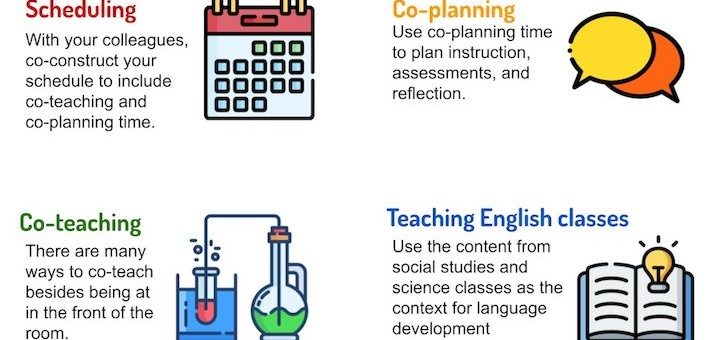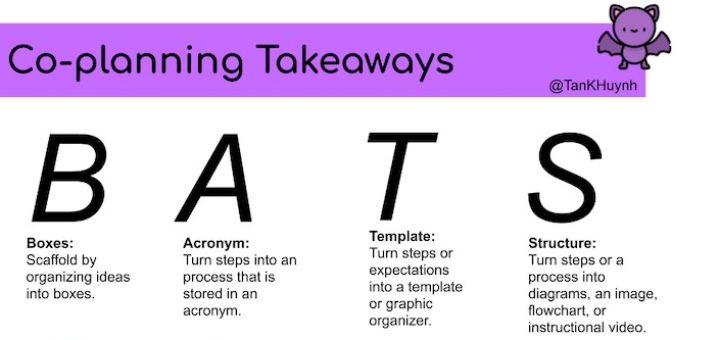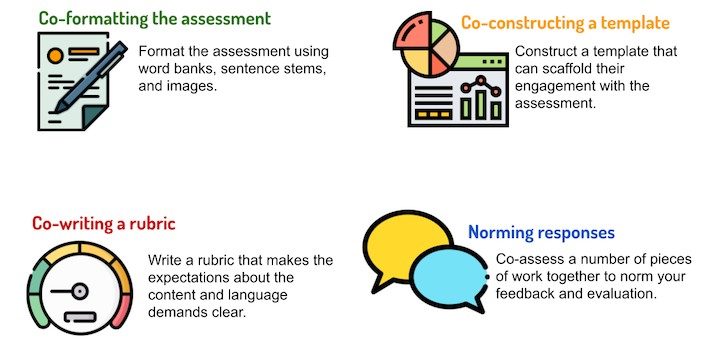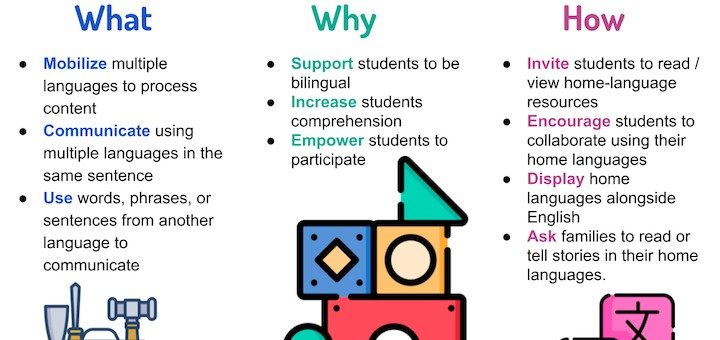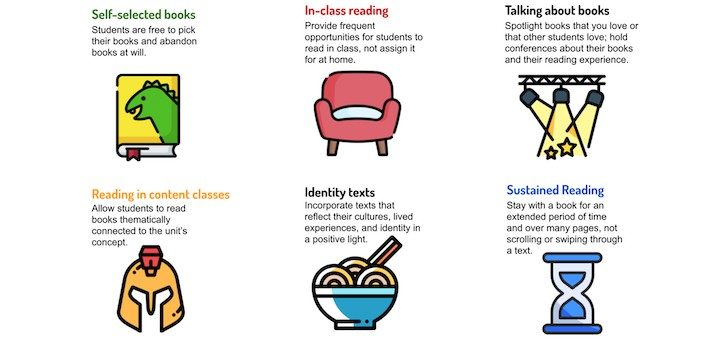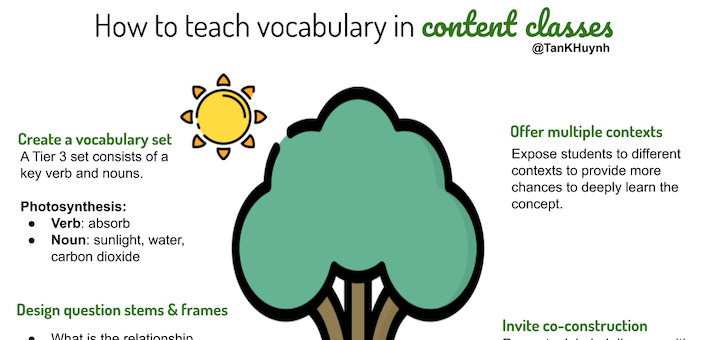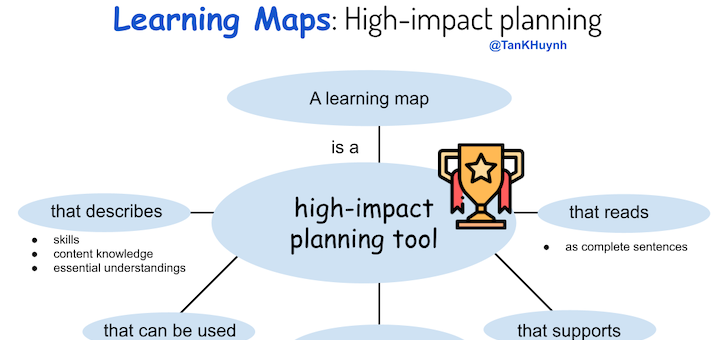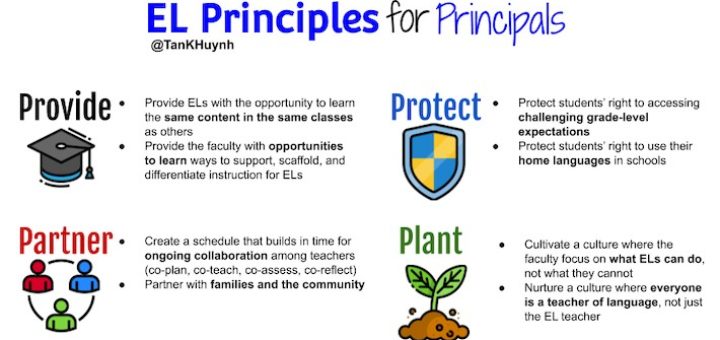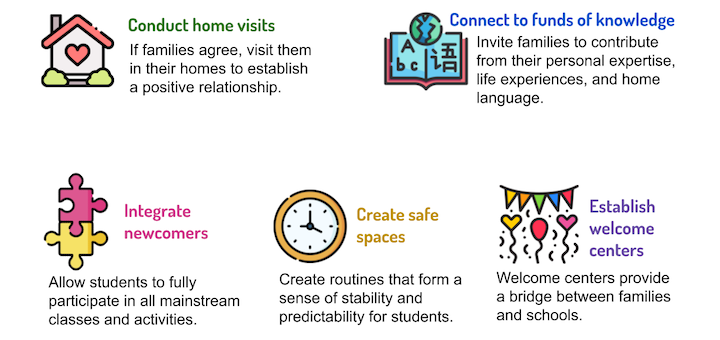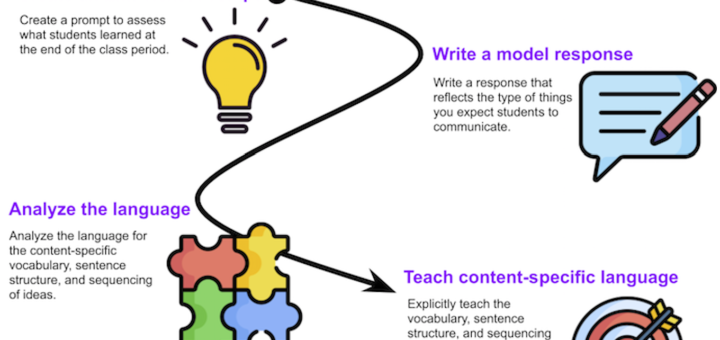Category: The Unstoppable ML Teacher
Language specialist Tan Huynh offers co-teachers an orientation he never had, sharing what being a language specialist looks like at different levels and with various tasks. Veteran co-teachers may also find helpful tips if they move among elementary and secondary grades.
Since EL specialist Tan Huynh can’t be in every co-teaching class every day to co-instruct with content teachers, he has developed strategies to guide learning from afar across grade levels and disciplines. Discover his BATS: boxes, acronyms, templates, and structures.
Assessments that aren’t designed with language learners in mind perpetuate an equity gap, writes teacher Tan Huynh. When language specialists co-assess with subject area colleagues they can ensure the right balance of challenge and support for each student. Here’s how!
English learners achieve more when we let them use all of their languages to understand and retain what they’re taught in subject-area classes. Teacher Tan Huynh shares Dr. Gini Rojas’s insights about the power of translanguaging and how mono-linguistic teachers put it to use.
For teacher Tan Huynh, nothing is more powerful than having students fall in love with reading. He shares ways to nurture readers, garnered from his podcast chat with Book Love author Penny Kittle. Start with self-selected books and in-class reading, guided by conferencing.
A school is an ocean of words, and many language learners are drowning in academic classes when content-specific words (Tier 3) are not explicitly taught. Tan Huynh shares an effective process to teach these specialized words from author and EL educator Stephen Fleenor.
Incorporating quick-to-prepare, visually appealing learning maps in your unit planning simplifies the process while increasing its effectiveness. In addition learning maps naturally guide co-planning between content teachers and language specialists, writes Tan Huynh.
Principals are the creators of school culture. Through their words, actions, and policies they can assure ELLs’ success. The work teachers need to do with language learners can’t be done without principal support. Tan Huynh offers 4 principles for school leaders to adopt.
A newcomer is a student who has immigrated from another country. Their experiences are quite different than those who are citizens of immigrant parents. Tan Huynh shares key ideas from author Louise El Yaafouri to both welcome newcomers and create a system that empowers them.
You don’t have to be an ELA teacher to teach academic content to English learners. The goal is to guide students in using language “like an expert in a particular field would use it,” writes Tan Huynh, who shares a 4-step process used by international consultant Beth Skelton.

